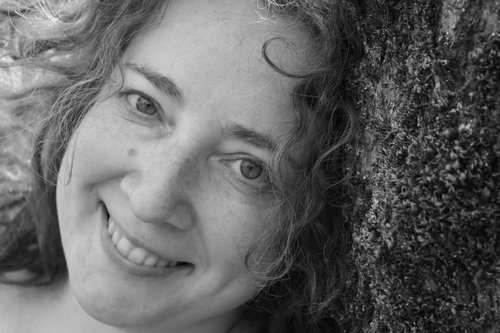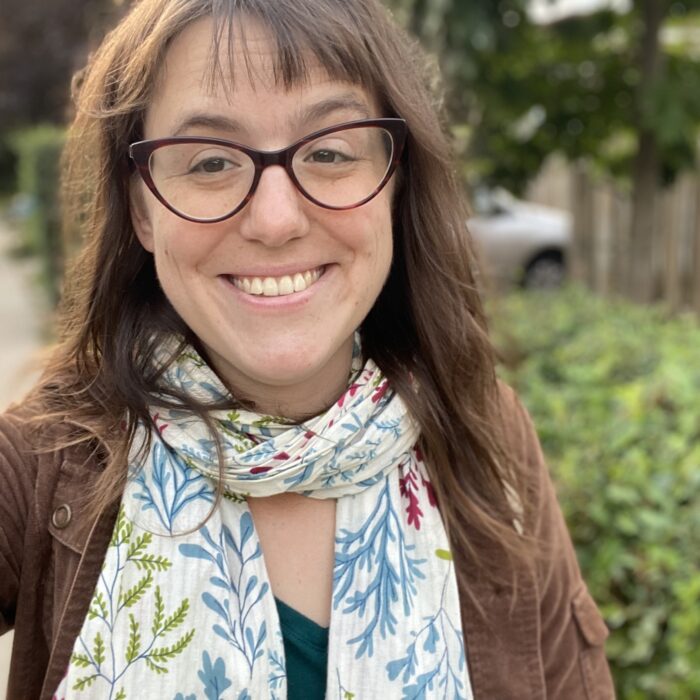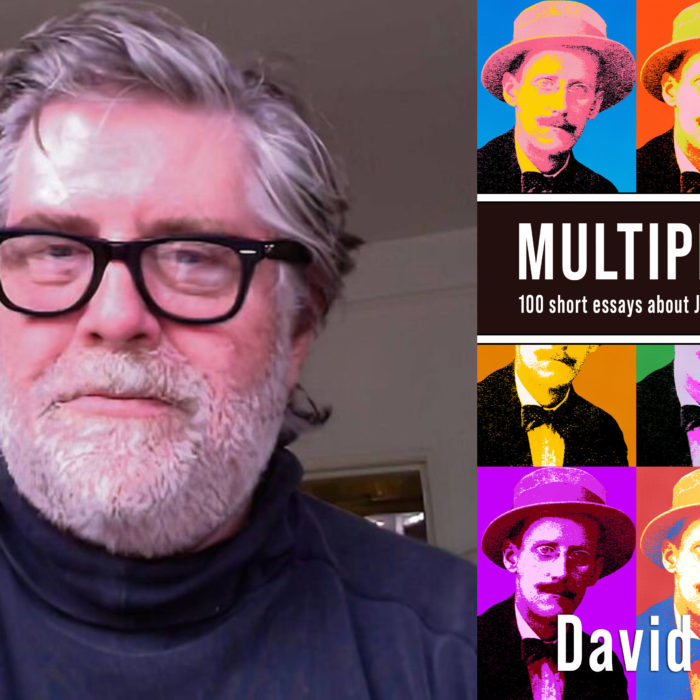You have no items in your cart. Want to get some nice things?
Go shoppingTania Hershman’s first collection of short stories, The White Road and Other Stories, described by Toby Litt as “acute, meticulous, memorable”, was commended by the judges of the 2009 Orange Award for New Writers, and her second collection of very short fiction, My Mother was an Upright Piano, was published in 2012 by Tangent Books. Drawing on her background as a science journalist, Tania’s stories are often inspired by science. She has been nominated for the Pushcart Prize, had her work broadcast on Radio 4, and been published in numerous magazines.
Tania teaches creative writing for the Arvon Foundation and is writer-in-residence in the Science Faculty at Bristol University, working on a new collection inspired by spending time in a biochemistry lab. She also edits the Short Review, an online magazine dedicated to reviewing short story collections.
Describe your earliest memory.
Falling off the seat in a London taxi and banging my head on the seat opposite, when I was about two or three. I have a tiny scar above my eyebrow.
What was the first book you ever loved? Why?
The Very Hungry Caterpillar. I adored that book! Why? Hmm. I loved the colours, I loved the association with food, and I loved the quirky holes in the pages… I can’t remember it exactly but I think I loved it because it was a book but it did things slightly differently!
Describe the first time you realised that the world may not be as it seems.
Wow, this is a hard question. I have to think about it. I don’t think I was very aware for a long long time. I was quite immersed in my imaginary world when I was a child, and I loved science at school, maths especially. I adored the logic, the fact that there was a right answer and a definite way to get there. So perhaps it was getting to university and discovering, when I began studying Maths and Physics, that the maths at this level was suddenly very abstract; there are no answers. That was a bit of a shock—and discovering I wasn’t very good at it! Also, I learned a lot, I think, when I was diagnosed over a decade ago with a health issue—the first time my body seemed not to be working properly. That was an existential jolt.
What has been the most formative place in your life? Why?
Jerusalem. It’s a city I lived in from 1994-2009, the bulk of my adult life. It was really the first place I chose to be home, rather than having that choice made for me; the first place I felt at home; and the first place I woke up in the mornings delighted to be in, every day, even the terrible days, the days of explosions and the deaths of friends, of war and conflict. It’s going to sound strange to those of you who have never lived in a place where you step out of your house with full awareness that each day might be your last, but it certainly adds colour to life, heightens everything, and once you’ve experienced that – I imagine this is why war correspondents do what they do – then living elsewhere, somewhere apparently “safer”, takes some getting used to.
Which literary or historical character do you most identify with? Why?
I don’t know if this counts, but I always wanted to meet Albert Einstein and Richard Feynman, my favourite physicists, but also they were far more than that—both emphasised the role of creativity and imagination in life, not to be bound by rules and regulations. Feynman would crack people’s safes, just for fun, and he played the bongo drums! Not that I am saying I am anywhere close to Einstein and Feynman in brainpower, who were geniuses, but I identify with their philosophies, I want to continue their legacy in some way, bring science into places it doesn’t normally go, and other things into science that haven’t been there – for a long time, anyway.
What do you do when you’re not reading or writing?
Blimey. Is there such a time? I am addicted to a few TV series – The Good Wife, Homeland, The Thick of It, to name a few. I also knit, when my poor computer-beleaguered hands allow me too. And I like to think I do some exercise, but probably not enough. I do teach more and more writing workshops, which I love doing. There’s nothing greater than inspiring someone else to write.
Describe the worst job you’ve ever had.
I did a week’s work experience at FeMail, the Daily Mail‘s “women’s” section, when I was studying journalism, last century, and that ended up being the venue where my first-ever article (on the health benefits of water!) was published. I was both delighted and utterly embarrassed. The Daily Mail is not my idea of a quality newspaper and Femail doesn’t really fit with my feminist ideals.
Describe your most defining experience with money.
I’m not sure I understand the question! Being paid for a short story was a huge thrill—my first time was for my first ever published story, which was actually broadcast on Radio 4. I bought a pair of gorgeous and gorgeously strange shoes that I never wear but they always symbolise to me my first writing breakthrough. I still find it odd to be paid for something I love doing, but I now understand that I need to ask for that, that we deserve remuneration for our work.
If you could time-travel and teleport, which literary world would you want to visit? Why?
I’ve never wanted to. When I read, if it’s a fantastic short story or other piece of writing, I am transported, if it’s doing its job. So no need.
Being a writer is a strange brand of “celebrity”. Tell us about your most memorable encounter.
It certainly can be strange. I did a reading a few months ago and it’s always difficult to pick which of my mostly very very short stories to read. I read one I love reading, ‘Missy’, because of the rhythms, but it does appear to be about an abusive mother. And someone came up to me after the reading and declared loudly, “I don’t agree with your story, ‘Missy’!” I had no idea what to say. How can someone not agree with a piece of fiction? I sort of smiled and let her talk a bit more, but I’ve certainly learned that I can’t try and respond. Each person reads – or hears – a story in their own way!
What’s the most extreme thing you’ve done in pursuit of your writing?
Another interesting question, and after mulling it over for a while all I can come up with is that I leave the extreme for the writing, not the pursuit of it. Writing stories is my way of doing things and going places I would never get to do – or be brave enough to do – in life. I’d rather be extreme in my imagination.
If you were to write yourself as a character, what would be your most defining characteristic?
I’d like to think my defining characteristic would be my powers of imagination. I hope.
If you could have a superpower, what would it be? Why?
Flying. Definitely. I love the dreams where I can fly – less to get somewhere than to get away, above. My ideal position has always been on the periphery, observing, rather than in the middle. Flying adds a whole new dimension to this possibility.
What is the most important piece of life advice you would give a young person?
Probably not to listen to anyone else’s advice! No, seriously. To go your own way, because you never see until afterwards, years later, when you are where you thought you might want to be or somewhere you didn’t know you wanted to end up, how often circuitous-seeming routes are far more interesting than the direct path. I had no idea when I started studying for a BSc in Maths & Physics at age 19 where this might lead me.
What’s next for you, work- and life-wise?
Well, I’ve just finished my first radio play—not sure if it will be produced but I had a lot of fun writing it; it was a different process from short stories. I actually had to plot it out first, which was novel, for me. I am also beginning to write poetry, which once again is utterly different and I am really really enjoying experimenting, with line breaks, with wordplay, all of that. I am theoretically working on a third collection of stories inspired by my time as a writer-in-residence in a biochemistry lab, but am not sure of the wisdom of planning a book of stories in advance, so I am not letting myself be too bound up by that. I have several other things in the works for next year, and am looking into spending time in a different lab here at Bristol University, something far away from biochemistry and its delicious vocabularies.
Life-wise, I have spent the past three years since we moved to Bristol in a kind of whirlwind of short story events, I am immensely lucky to get so many fantastic invitations! But I am going to slow slow slow down next year, because I want to regain space in my head for stories. The aspect of being an author that requires you to talk about yourself is a privilege but is also something that I don’t think comes naturally to most of us, who probably want to spend most of our time in the worlds inside our head. I’d better spend more time there or there won’t be any writing to talk about, will there? Thanks for having me!
You can listen to Tania talking about flash fiction on our Litro Lab podcast.

About Emily Cleaver
Emily Cleaver is Litro's Online Editor. She is passionate about short stories and writes, reads and reviews them. Her own stories have been published in the London Lies anthology from Arachne Press, Paraxis, .Cent, The Mechanics’ Institute Review, One Eye Grey, and Smoke magazines, performed to audiences at Liars League, Stand Up Tragedy, WritLOUD, Tales of the Decongested and Spark London and broadcasted on Resonance FM and Pagan Radio. As a former manager of one of London’s oldest second-hand bookshops, she also blogs about old and obscure books. You can read her tiny true dramas about working in a secondhand bookshop at smallplays.com and see more of her writing at emilycleaver.net.





I did my work experience at ELLE magazine. Not as embarrassing as the Daily Mail but I feel your pain. Still, impossible not to be excited by those sorts of things when we’re young – and quite right, too. It would be a shame if our better judgement clicked in too soon and stopped us having experiences, of any kind.
Lovely interview – thanks!
Thanks for commenting, Sarah, and easing my loneliness at the non-comments! ELLE magazine is way way cooler – but good point about better judgements, I am all for having all kinds of experiences. If anything, they make for good dinner party conversation!